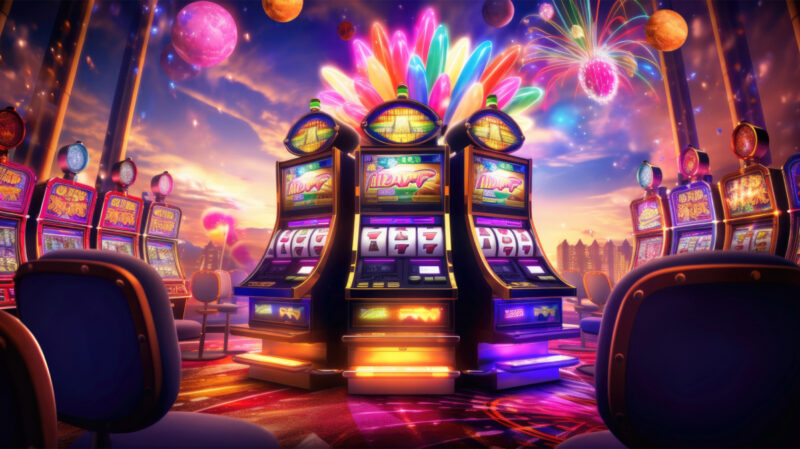
In recent years, the gambling industry has emerged as one of the most innovative sectors, capturing the public’s attention more than ever. The infusion of cutting-edge technology has transformed the gambling experience, elevating it to unprecedented heights. This transformation can be traced back to the 온라인 슬롯 cultural and social habits surrounding gambling, which have laid the groundwork for its advancements. Notably, gambling has forged deep connections among people across the globe, a bond that has only intensified when considering the influences from colonial times. Today, the convenience of modern technology ensures that this captivating form of entertainment shows no signs of slowing down.
The Historical Context of Gambling
Gambling has a long and rich history that dates back thousands of years. Various cultures have engaged in games of chance, from ancient Chinese lotteries to Roman dice games. These early forms of gambling were not just pastimes; they often held significant social and cultural meanings. They served as tools for community bonding, competition, and even spiritual rituals.
As societies evolved, so too did their gambling practices. The advent of colonization played a pivotal role in shaping gambling culture worldwide. Colonial powers often imposed their own gambling habits on the territories they occupied, creating a blend of indigenous and colonial practices. This interplay of cultures resulted in unique gambling traditions that enriched the global landscape. Today, we see the remnants of these historical influences in various forms of gambling around the world, from poker to bingo.
The Impact of Technology on Gambling
In the last decade, technology has revolutionized the gambling industry in ways previously unimaginable. Online gambling platforms have become increasingly popular, allowing players to enjoy their favorite games from the comfort of their homes. This shift not only enhances convenience but also broadens accessibility, enabling a more diverse range of players to engage in gambling activities.
Innovative technologies such as virtual reality (VR) and augmented reality (AR) are now being integrated into the gambling experience. These advancements offer immersive environments that transport players into realistic casino settings, providing an unparalleled sense of presence. Moreover, mobile technology has enabled gambling to become a part of everyday life. With just a smartphone, individuals can access a wide array of games and betting opportunities at any time, making gambling more accessible and appealing than ever before.
The Cultural Significance of Gambling
Gambling is not merely a form of entertainment; it holds cultural significance in many societies. It has the power to bring people together, fostering community spirit and camaraderie. Events such as poker tournaments and sports betting gatherings create social experiences where individuals can bond over their shared interests and passions.
The cultural impact of gambling extends beyond mere enjoyment. In many societies, it has become a ritualistic practice, marking significant life events and celebrations. For instance, weddings and festivals often incorporate games of chance as a means of celebration and community engagement. Such practices highlight gambling’s role in enhancing social ties and creating memorable experiences.
The Role of Regulation and Responsible Gambling
As the gambling industry continues to evolve, so does the need for regulation. Governments worldwide are recognizing the importance of establishing frameworks to ensure fair play, protect consumers, and promote responsible gambling practices. Regulatory bodies are working diligently to create standards that safeguard players while allowing the industry to flourish.
Responsible gambling initiatives aim to raise awareness about the potential risks associated with gambling. These programs educate players about the importance of moderation and provide resources for those who may need assistance. By promoting responsible gambling, the industry can cultivate a healthier environment that benefits both operators and players.
The Future of Gambling: Trends and Innovations
Looking ahead, the future of gambling appears bright and full of potential. As technology continues to advance, we can expect further innovations that enhance the gambling experience. The rise of cryptocurrency and blockchain technology is already making waves in the industry, offering secure and transparent transactions. These developments not only streamline payment processes but also attract a new generation of players who value privacy and security.
Additionally, the integration of artificial intelligence (AI) is set to transform customer experiences. AI-powered chatbots can provide instant support, while machine learning algorithms can personalize gaming experiences based on player preferences. This level of customization is poised to elevate player satisfaction and engagement to new heights.
Conclusion
In conclusion, the gambling industry stands at the forefront of innovation, captivating audiences worldwide. Its historical roots, cultural significance, and technological advancements have created a dynamic landscape that continues to evolve. As we embrace the future, the potential for growth and transformation within the gambling sector is limitless. By fostering a responsible and inclusive environment, the industry can ensure that this exhilarating form of entertainment remains a cherished part of society for generations to come.
Gambling is more than just a game of chance; it is a multifaceted phenomenon that reflects the complexities of human interaction, culture, and innovation. With each advancement, we deepen our connection to this age-old practice, paving the way for a thrilling future filled with possibilities.